Preview: Stade Velodrome offers grandstand finish for Tour de France time trial
Froome looks to seal fourth win in Marseille
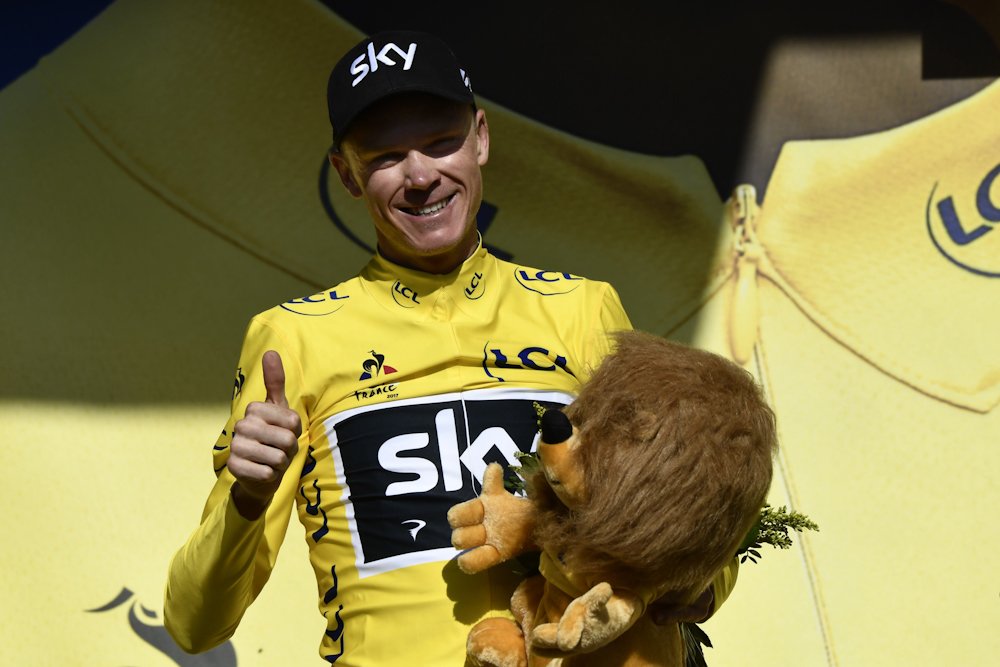
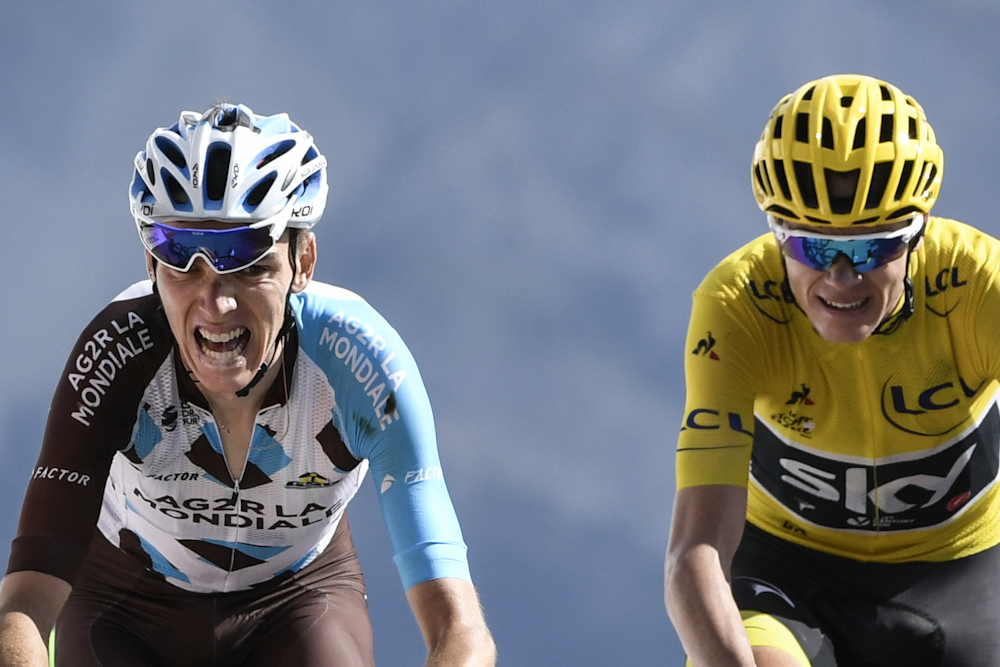
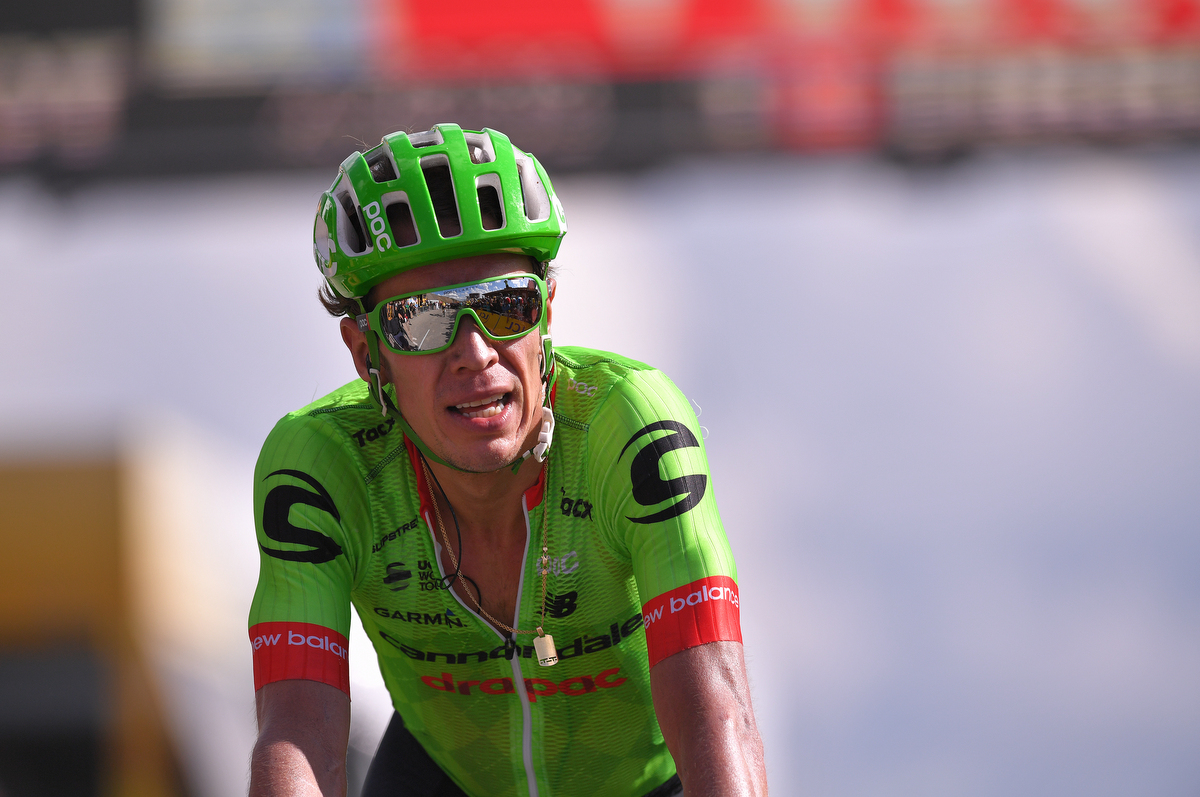
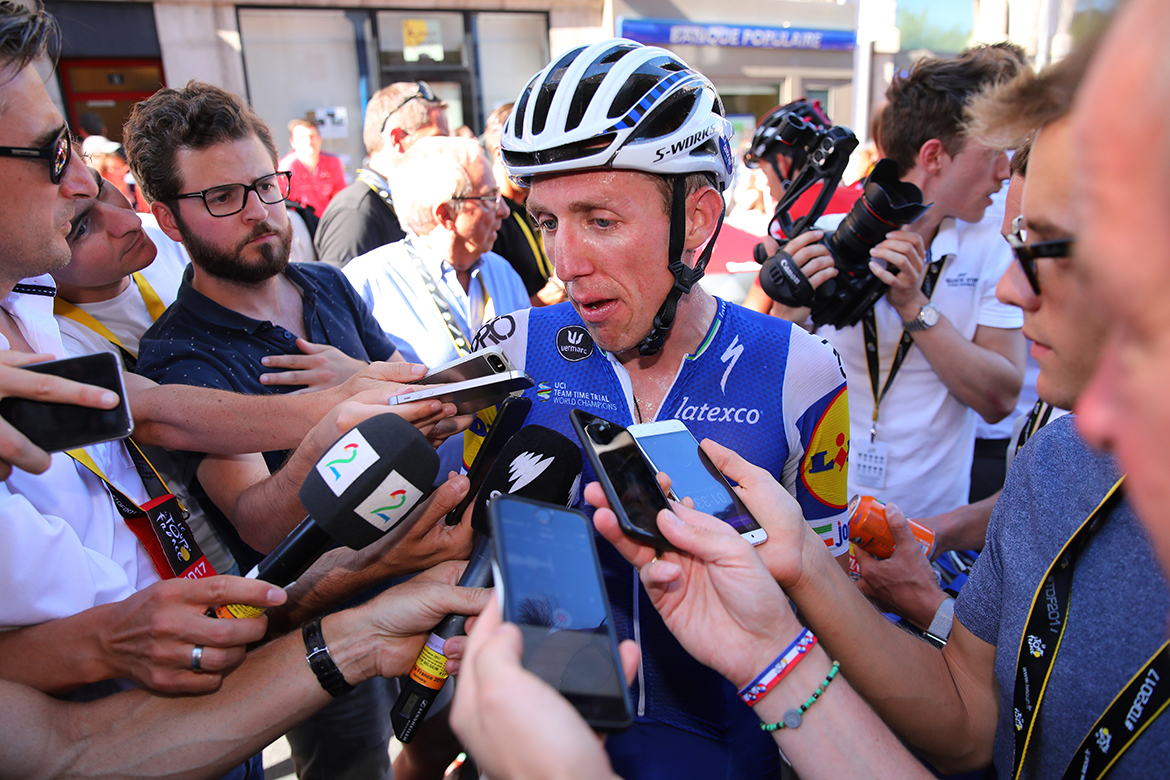
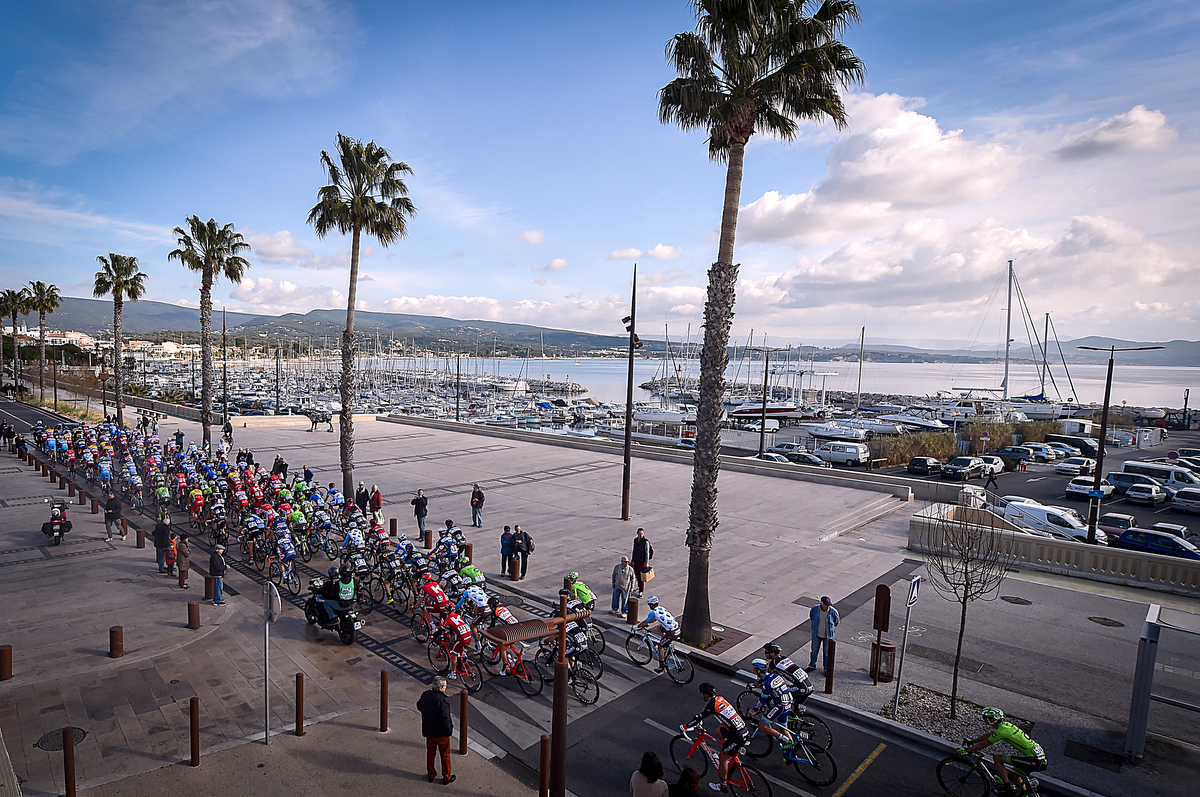
Back to the future. The Stade Vélodrome in Marseille, as the name suggests, began its existence with a cycling track around its perimeter, but over the years it gradually shifted from a multi-sport complex to a football-specific stadium. Ironically, the final transition came in 1985, when Bernard Tapie, owner of the La Vie Claire squad of Bernard Hinault, added Olympique de Marseille football club to his portfolio and had the track ripped up to increase the capacity of the stadium. By the end of the decade, he had eschewed cycling for football altogether.
Sky's 'vortex generator' skinsuits questioned by Tour rivals but permitted by commissaires
Froome: I thought my fight for yellow was over
Tour de France: Froome firmly in control on the Galibier
Froome cautious but confident after exiting the Tour de France mountains in yellow
No 'vortex generator' skinsuit for Froome in final Tour de France time trial
Tour de France in Froome's hands ahead of Marseille time trial
Tour de France: Stage 20 time trial start times
Tour de France: Keukeleire comes close for Belgium in Salon-de-Provence
On Saturday, the stage 20 time trial of the Tour de France will start and finish in the Stadé Vélodrome, the race's first visit to the stadium since 1967, when Raymond Riotte claimed the honours on the eve of Tom Simpson's death on Mont Ventoux.
This year's stage at the Stade Vélodrome is both a nod to the Tour's past and a possible pointer to its future. Stage finishes on cycling tracks were a staple of the Tour during its sepia-tinted era, only to fall out of favour in the late 1960s and early 1970s.
Since the turn of the decade, however, ASO has been investigating the viability of hosting starts and finishes in football stadia, and thus the Stade Vélodrome time trial has the feel of a test run. It is hardly coincidental, either, that Tour's telecommunications Orange is also the owner of the stadium's naming rights, and the road book dutifully lists the venue as the Orange Vélodrome. The Tour has always been a business venture, after all.
Tickets for this year's event, mercifully, are free, and by June 1, some 45,000 had been booked. It has been expected that the crowd on Saturday afternoon will even approach the capacity of 67,000, though seats are still available. Before his abandon in the third week, Thibaut Pinot, a noted Paris Saint-Germain fan, joked about the prospect of riding into the home of PSG's rivals: "The stadium might even be full for a change."
Chris Froome (Sky) looks destined to win a fourth Tour title, but the tightness of the margins means that the masses will be treated to something of a grandstand finish all the same. Froome rolls down the start ramp in front of the Tribune Ganay with a lead of just 23 seconds over Romain Bardet (AG2R La Mondiale), and while he has finished behind the Frenchman just once [at the 2015 Tour de Romandie – ed.] in a time trial during his career, his advantage is such that a puncture or misjudged corner could make for an uncomfortable afternoon.
Rigoberto Uran (Cannondale-Drapac) is only a further 6 seconds back in third, and perhaps a more likely challenger given his reasonable time trialling pedigree. The Colombian put 1:17 into Froome over 36 kilometres in the Borja time trial at the 2014 Vuelta a España, after all, though his record against the watch has deteriorated somewhat since his brief purple patch in the discipline during his tenure at Quick-Step.
Get The Leadout Newsletter
The latest race content, interviews, features, reviews and expert buying guides, direct to your inbox!
Logic says that the afternoon's principal battle will be between Bardet and Uran for the second and third steps of the podium, though on the penultimate day and final effort of a three-week tour, relative freshness can count as much as time trialling ability. "I like the final time trial of the Tour de France," Bardet insisted. "Everything is still possible in any case."
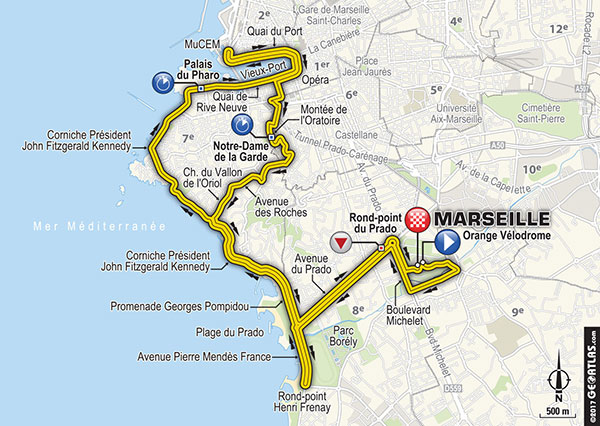
The route
The pitch on the Stade Vélodrome had already been ripped up for a Celine Dionne concert in midweek, and over the past number of days, two temporary, tarmac tracks have been laid to allow riders to leave and re-enter the stadium for the start and finish.
The opening half of the route is flat and fast, as riders sweep down the Avenue du Prado on to the seafront, and then hug the Corniche Président John F Kennedy as they head north towards Marseille's Old Port and the first time check after 10.2 kilometres.
The course becomes mildly more technical once it winds away from the Vieux-Port, and the terrain changes briefly, but very abruptly when riders hit the ascent of Notre-Dame de la Garde, which climbs for 1.2 kilometres at an average gradient of 9.5%. The second time check comes at the summit, after 15.6 kilometres.
A short, fast descent follows before the course retraces its steps along the Corniche and then sweeps back up the Avenue du Prado towards the finish, where there surely will be a tumultuous reception for each of the survivors. If they could see Paris from atop the Col d'Izoard, they might hear it from inside the Stade Vélodrome.
The 19 riders who finished La Course within five minutes of Annemiek Van Vleuten on the Col d'Izoard will provide the prelude to stage 20 of the Tour, as they participate in La Course Pursuite, a handicap time trial which takes place along the same 22.5-kilometre route. While the Stade Vélodrome is indeed a fitting theatre for some of the best women's riders in the world, the same can hardly be said of the format of the race itself.
The contenders
World time trial champion Tony Martin (Katusha-Alpecin), Stefan Küng (BMC) and Primoz Roglic (LottoNL-Jumbo) are perhaps the most obvious candidates for a stage victory, but the general classification battle will be the principal focus. Outside of Bardet and Uran, however, the other positions in the top five appear to be settled. Mikel Landa (4th at 1:36) seems unlikely to ride his way onto the podium, while despite the local knowledge gleaned from his amateur days in Marseille with VC La Pomme, Dan Martin (6th at 2:56) will struggle to make up his deficit on Fabio Aru (5th at 1:55).
As on the opening day in Düsseldorf, Froome will be the last man down the start ramp on Saturday afternoon, though his attire will, of course, be different, and not only because of its colour. Froome will ride the time trial in a yellow skinsuit provided by ASO rather than a team-issue 'vortex generator' skinsuit of the kind he wore on stage 1, though he was phlegmatic about his restricted wardrobe choices on Friday afternoon.
"At the end of the day, it's all about the legs," Froome said. "It's definitely a fast course, although there's a small climb out the back of Marseille. I think it suits me well, it's quite a power time trial."
While Froome was attending to the media duties of the maillot jaune in the mixed zone after stage 19, Bardet was sitting into a team car to drive ahead to AG2R La Mondiale's hotel, which is rather conveniently located across the street from the Stade Vélodrome. As he spoke to reporters, a formation of fighter jets – part of the Tour festivities in Salon-de-Provence – soared overhead.
"I hope I can go at the same speed as those planes," Bardet joked as he squinted at the sky. "I haven't been to see the course yet, but I'm used to riding time trials at the end of the Tour and I like the effort."
Bardet played a straight bat when asked if was hoping that a mechanical problem might stymie Froome's progress. "I'm not hoping for anything like that, I'll just give my all like I did on the 19 stages up to now," he said. "I'm only thinking about going as fast as I can, and then we'll see how I end up."
Every second still counts, but at this late juncture, it seems as though Froome already has enough in hand.

Barry Ryan was Head of Features at Cyclingnews. He has covered professional cycling since 2010, reporting from the Tour de France, Giro d’Italia and events from Argentina to Japan. His writing has appeared in The Independent, Procycling and Cycling Plus. He is the author of The Ascent: Sean Kelly, Stephen Roche and the Rise of Irish Cycling’s Golden Generation, published by Gill Books.